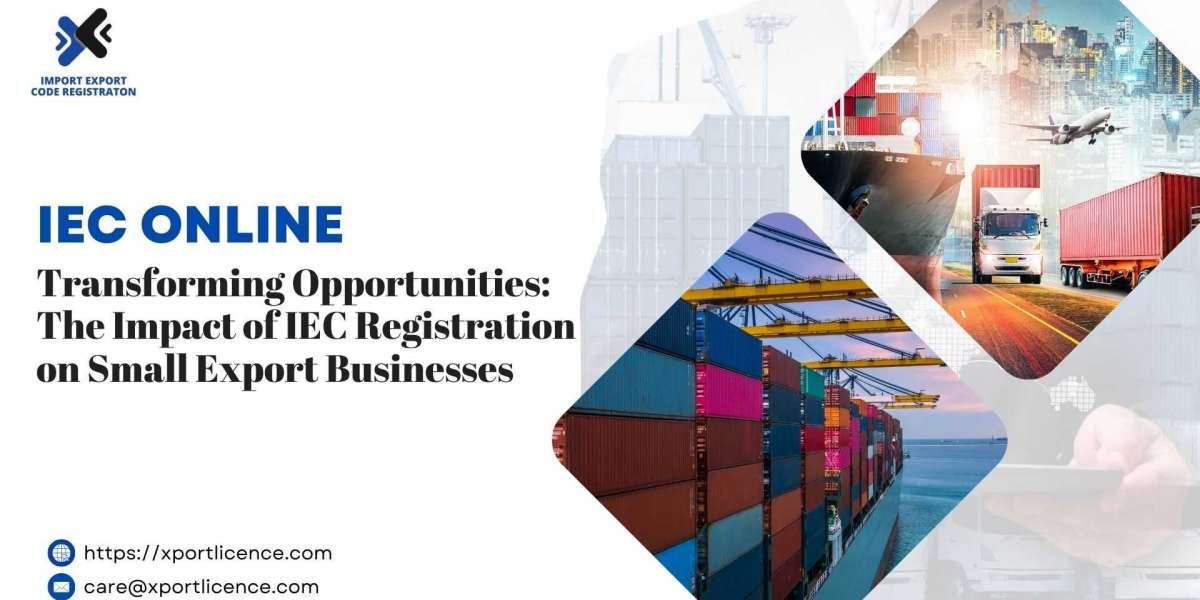Global trade offers boundless possibilities for businesses, regardless of their size. Small exporters in India play a vital role in driving the economy forward by connecting local products to international markets. However, obtaining an Import Export Code (IEC) is a non-negotiable step to ensure their operations are legally compliant and globally recognized. In this article, we delve into the significance of IEC registration for small export businesses, the benefits it unlocks, and the step-by-step process for registration.
Understanding IEC Registration
IEC (Importer Exporter Code) is a unique identification number. It is a critical prerequisite for businesses engaged in importing or exporting goods and services. The purpose of this code extends beyond merely facilitating trade—it acts as an authorization that bridges small businesses to international buyers and sellers, fostering seamless transactions and compliance with trade regulations.
Why is IEC Registration Crucial for Small Export Businesses?
Legal Compliance
Small businesses venturing into international trade must comply with legal requirements to avoid penalties and disruptions. IEC registration establishes them as legitimate entities authorized to participate in export and import activities.
Global Market Access
With an IEC, small businesses can sell their goods and services beyond borders. This access to international markets expands their customer base and revenue potential.
Eligibility for Government Benefits
The Indian government offers various export incentives under schemes like MEIS (Merchandise Exports from India Scheme) and SEIS (Service Exports from India Scheme). Businesses must have an IEC to avail these benefits.
Customs and Banking Operations
IEC is necessary for clearing goods at customs and receiving payments in foreign currencies through authorized banks.
The Role of IEC in Empowering Small Exporters
Enabling Participation in Online Marketplaces
Many global e-commerce platforms, like Amazon and eBay, require an IEC for Indian sellers. It ensures seamless onboarding for small businesses onto these marketplaces, enabling them to reach a worldwide audience.
Facilitating the Export of Niche Products
India boasts a rich heritage of traditional crafts, organic products, and artisanal goods. With IEC registration, small exporters of such niche products can connect to buyers worldwide, leveraging their unique value proposition.
Enhancing Brand Credibility
Holding an IEC enhances a small business's reputation, making it easier to attract international clients and establish trustworthy collaborations.
Steps to Register for an IEC
To reap the benefits of global trade, small businesses need to secure their IEC. Here's a simplified guide to the process:
Step 1: Access the Official Portal:- Start your journey by visiting the official IEC Registration Portal. This government-authorized platform is designed to make registration easy and efficient for businesses.
Step 2: Fill Out the Registration Form:- Once you’re on the portal, locate the registration form and provide the required business details. These include:
- The enterprise’s name and type (proprietorship, partnership, etc.).
- Your PAN number.
- Address and contact details.
Take your time to enter everything correctly to avoid discrepancies later.
Step 3: Submit Your Application:- After completing the form, review your inputs meticulously. Once satisfied that all details are accurate, hit the “Submit” button. Ensure all mandatory fields are filled to avoid delays.
Step 4: Pay the Registration Fee:- You’ll now move to the payment step. Follow the on-screen prompts to pay the required registration fee securely. Most portals provide multiple payment options for convenience, so you can pick what suits you best.
Step 5: Application Review and Processing:- After the fee is successfully paid, the application enters the review phase. A dedicated registration executive will inspect your submission for accuracy and completeness. This step ensures everything aligns with the regulatory requirements.
Step 6: Receive Your IEC Certificate:- Once the review is complete and your application is approved, your IEC Registration Certificate will be issued. Usually, you’ll find this certificate in your registered email inbox within 1 to 2 hours—a fast and reliable process that gets you closer to trading globally!
Note:- Apply for Renewal IEC Code through our website
Conclusion
IEC registration is more than a legal requirement; it’s a gateway to unlocking global opportunities for small export businesses. By legitimizing their trade activities, enhancing visibility in international markets, and facilitating access to government incentives, the IEC empowers small exporters to dream big. Whether you're selling handmade crafts, exporting organic produce, or offering digital services, obtaining an IEC is the first step to scaling your business on a global platform.







